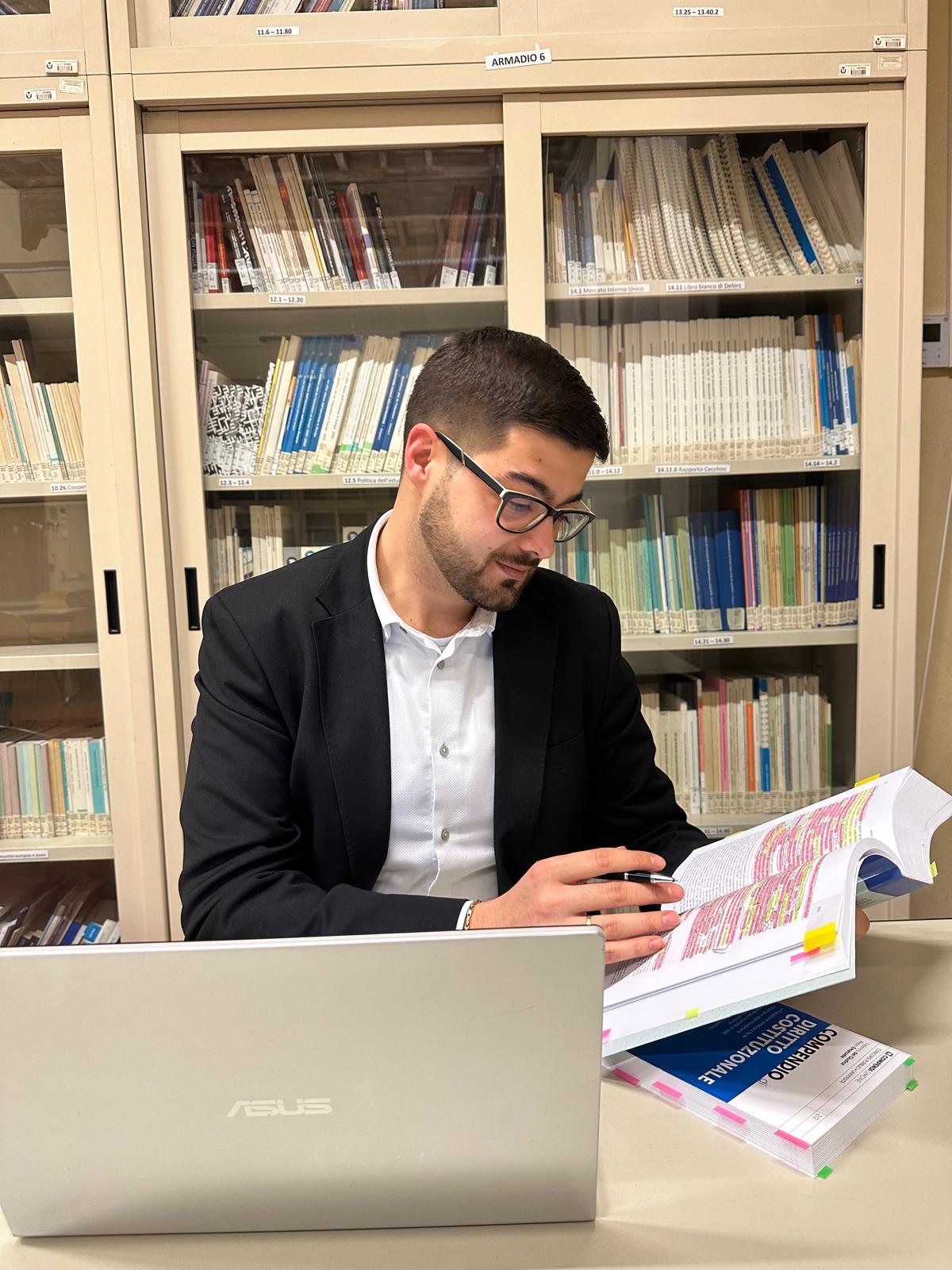Matteo Pelusi, always keeping the value and importance of the dignity of life at the centre we move forward
First of all, let me introduce myself, my name is Matteo Pelusi (class of 1998) and I am originally from a small village overlooking Lake Varano, on the Gargano promontory in Apulia, precisely Cagnano Varano in the province of Foggia.
… After the celebrations on 9 July 2024 for my degree in theology and 17 July 2024 for my degree in medical biotechnology, what should I choose for my specialisation studies? Which master’s degree to pursue? Which new path to follow? So I decided to go and talk to the professor who had supervised me for my thesis in bioethics in Rimini to find out if there were any masters degrees, courses, or something like that related to bioethics. My professor began: ‘There is indeed the faculty of Bioethics in Rome at the Regina Apostolorum Pontifical Athenaeum, that’s where I studied, the intensive weeks mode would also allow you to continue working if you don’t want to move permanently to Rome.
I did not have to think about it too much, I looked carefully at the study plan, the requirements for accessing it, and also the requirements for applying for a possible scholarship to ‘lighten’ the costs. By the end of summer 2024, I was on my way to Rome to make my enrolment in the Faculty of Bioethics official and to get to know the university and also to learn my way around the Eternal City.
The first intensive weeks were exciting and I am sure that the next ones will be too. I found an environment full of people with different backgrounds, ages, education, professions and motivation. The lectures of the lecturers are clear and based on scientific, legal and theological-philosophical officialdom, the training offered is comprehensive and allows for serious and responsible dialogue and study environments, all in an atmosphere of humanity and mutual respect between students and lecturers to offer a total and complete formation in every aspect. Rigorous study is certainly demanding but fatigue is a sign that one is working well.
This is why I gladly accepted the request to leave my testimony, first and foremost to thank those who have supported the University over the years, and moreover, having been the recipient of a scholarship, thanks is also due for this opportunity, which is not to be taken for granted.
I think it is just as important to raise awareness of this academic reality, which deserves to be enhanced nationally and internationally, to foster environments for dialogue and study to address the problems and issues that arise as the years go by, always keeping at the centre the wellbeing of the person and the value of the dignity of human life, which must always be defended and protected, especially in times of illness and fragility, something that unfortunately in today’s society is in danger of taking a back seat, the news events of recent years and times are clear regarding certain issues that have to do with life and illness, which are then surrounded by misinformation and the instrumentalisation of certain topics.
I end this testimony and this thank you confident and grateful for what I am building in my personal and professional life, hoping one day to be able to make the most of my studies in bioethics and the training that the University is giving me both from a human and academic point of view. I see the Faculty of Bioethics not only as a goal for me, but also as a new springboard, and today I see it above all as a red thread that holds together all the experiences I have had, the encounters I have made, the smiles I have given and received, both with the people who are still here and with those who are no longer here, but without whom I might not have made it this far as a man, as a medical biotechnologist and as a teacher. I do not know what the future has in store for me, but I am confident that by continuing to follow this ‘red thread’ I will not be disappointed either humanly or academically. At this time, providence wanted me to go teach at a professional institute that prepares and qualifies boys and girls to become socio-healthcare workers (OSS), and I realise how important it is for them too to talk about these issues, to offer them tools and knowledge so that they can always treat the most fragile people with the utmost delicacy: the elderly, children, the disabled, the sick, and above all to rediscover the importance of a job that is often underestimated or belittled.
I always say to my students, ‘remember that when the doctor can no longer do anything against the disease, with the sick, in the most fragile, most intimate, most delicate moments, you will be there, and in the eyes of the world you will be just one operator among many, but for those people you will be everything, help, compassion, listening, understanding, tenderness, support’. I feel I can end this testimony, grateful for what I have done and am doing and for those who have given me the opportunity, ready to carry on with my work, my studies and my continuous training, generally when I am not on substitute teaching assignments at school I am happy to continue to grow my experience as a medical biotechnologist in analysis and research laboratories.
Always keeping the value and importance of the dignity of life at the centre, we move forward.





